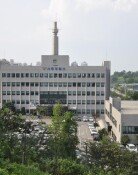Unemployment Rate Reaches 3.1 Percent
Unemployment Rate Reaches 3.1 Percent
Posted January. 23, 2008 07:38,
Yang, 33, who graduated from a prestigious private university in 2001, starts his day at noon. After getting up late, he enjoys role-playing computer games and comic books until the dawn. He has working experience. Upon graduating, he landed a job at a well-known large corporation but resigned two years later. He has turned down several job offers he has received since quitting the job. Since lots of young people are struggling to be employed in the job market, his family and friends dont understand his choice. Yang said, I still have some money and I dont feel obligated to work under stress and pressure unless I can earn more than 100 million won per year.
More than 2 million Yangs exist in Korea. Even though they are capable of working, they refuse to work, study, or take care of household chores. According to the Employment Data of 2007 released by the Korea National Statistical Office, economically non-active population reached 14.954 million in 2007. Out of the economically non-active population, 2.077 million turned out to be unemployed without a reason. They are neither those unemployed seeking jobs, nor housewives raising children and taking care of household chores. They are not students who are enrolled in schools or private institutions. They are not freeters who make a living by part-time jobs. The category excludes the aged who cannot work anymore and those who resigned due to illness.
Official unemployment rate stood at 3.1% (780,000) as of late last year.
○ Capable of Working but No Desire to Work
Unmarried 45-year-old Goh quitted her ten-year-old business early last year. She paid back all of her debt which she borrowed to run the business and now she has no plan for the future. Goh said, I dont have enough money to start another business and I know its very tough for a middle-aged woman to get employed. Few months ago, she went to a private institution to learn baking skills but gave up soon. She just wanted to take more rest.
The aforementioned people have something in common; they refuse to work although they can do something to earn money if they want. The unemployed in the category include those who choose to quit job which does not provide reasonable salary, social status, and employee benefits, those who do not work after early retirement, and those who have income sources or depend on other family members. Even though some of them are considered as so-called Kangaroos who refuse to work and depend on their parents, the category also includes the middle-aged who do not have any desire to work after early retirement. An official of the statistical office said, They are distributed across all age groups.
Although they have no desire to work right now, they are willing to get back to the job market only if they are given very attractive positions. They are just postponing seeking job until they find the right one. The number of discouraged workers has increased from 1.288 million in 2000, 1.617 million in 2003 and 2.034 million in 2006.
○ Imbalance in the Labor Market
If the discouraged continue to refuse to participate in the job market for a long time, they can turn into so-called NEET (Not in Education, Employment, or Training) who refuses to live more actively. The NEET who do not belong to any of workplaces or schools and refuse to participate in job training aggravates national competitiveness and causes social problems. A society cannot be healthy if the number of people who cant find a meaning in life and live a lethargic life advances.
Yoo Gyeong-jun, a researcher at the Korea Development Institute, said, Lots of people in their 20s or 30s are well-educated but they dont feel any pressure to have a job since they have been overprotected by their parents.
Experts point out imbalance in the labor market as the biggest reason of the phenomenon. In other words, job seekers want more decent jobs in the job market when companies fail to create appropriate job positions. At present, well-educated workers holding at least bachelors degrees have increased. Due to the unemployed, Koreas employment-to-population ratio stood at 59.8 percent in 2007, staying below 60 percent for several years. It is far lower than 65-70 percent of developing nations.







